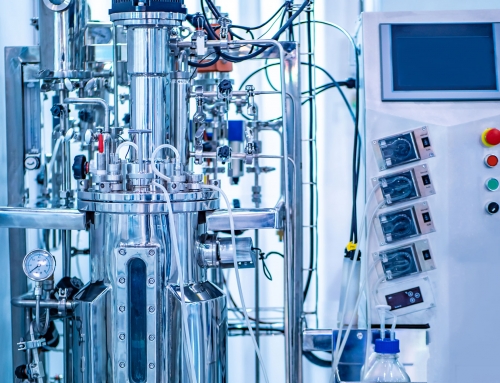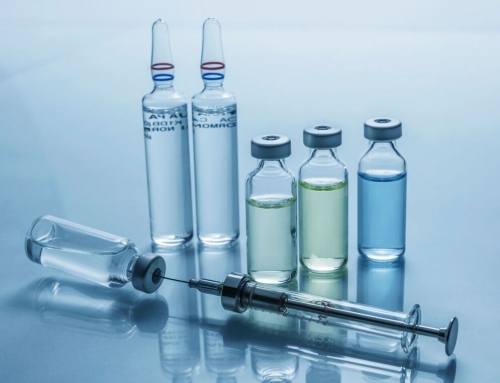As the biologics market expands, developers need support from expert contractors.
by Raymond E Peck, CEO of VxP Biologics
A growing number of pharmaceutical development companies are partnering with contract manufacturing organizations (CMOs) to meet the global demand for biologics. This investment comes with good reason: as of 2016, the global biopharmaceutical market was valued at $192 billion, up from $176 billion in 2015, witnessing a staggering compound annual growth rate (CAGR) of 8.6 percent.
Big pharma companies have expressed intense interest in the biologics market since 2008 or earlier. Major players such as Wyeth, Pfizer and Bristol-Meyers Squibb have all acquired smaller biotech firms and purchased large biomanufacturing facilities, as well as investing in enhanced capabilities for existing ones. As blockbuster biologic patents worth billions expire every year, the market remains ripe for firms able to move quickly and capitalize on their intellectual property (IP).
In this highly competitive landscape, expert manufacturing capabilities are more crucial than ever. Few pharma developers possess these the in-house expertise necessary to ensure efficient manufacturing processes that produce minimal waste. However, some contract manufacturers offer exactly that level of expertise, providing significant advantages over in-house capacities.
Here are some of the most critical reasons why biologic developers are partnering with CMOs.
Contract manufacturing organizations offer strong expertise in biologics processes.

CMOs can proactively manage biologics processes and help mitigate risk.
Not all CMOs provide equal technical competency. Any developer planning to partner with a CMO should perform due diligence, auditing carefully for quality, consistency, cost-effectiveness and related factors. However, once a developer has found a trustworthy contractor, the benefits of that partnership can far exceed the capabilities of any in-house facility.
Contract manufacturers typically offer equipment, facilities and trained teams for a wide range of processes that may be needed in the development and manufacture of pharmaceuticals. Some provide fill and finish capabilities, while many others provide equipment for large-scale lyophilization and other expensive manufacturing processes. This not only means that the developer can save money they’d otherwise spend on new equipment as their needs evolve; it also means they can take advantage of the economies of scale offered by the CMO’s existing facilities.
In addition to familiarity with biotechnological equipment and processes, some CMOs also offer considerable expertise at navigating the labyrinth of local, national an international regulations for the manufacture and distribution of biopharmaceuticals. This familiarity is crucial, because a single misstep in the packaging or distribution of a biologic drug can lead to significant loss of funds and product, while setting the entire operation back days or weeks.
Some contractors may even own intellectual property (IP) that enables them to deliver unique benefits at certain points in the testing and manufacturing phases. Others may work with the development firm to create innovations in certain processes, generating valuable new IP that can be monetized, or leveraged to confer a competitive advantage in the marketplace. Advantages like these become much more likely when both the developer and the CMO both possess an intimate understanding of the development and manufacture of a given biopharmaceutical.
CMOs can proactively manage biologics processes and help mitigate risk.

Contract manufacturers offer heightened returns on biologics process investments.
A good biopharmaceutical product does not necessarily equate to success in the marketplace. In today’s heated competitive climate, technical knowledge must be complemented by managerial expertise, in order to achieve peak performance and maximum efficiency throughout the manufacturing and distribution stages.
Even the most marketable biologic can underperform if limited by poor communication, inadequate transparency, uncooperative partners, or leaks in confidentiality. All these issues have been known to trigger chain reactions in which trust between the developer and CMO breaks down, leading to disputes and disruptions in manufacturing. On the other hand, a contractor that takes the lead on project management, keeps proprietary data secure, offers regular site visits and video conferences to report on progress, and remains transparent about logistical concerns, can significantly improve the effectiveness of a manufacturing program.
In fact, proactive management can contribute strongly to risk mitigation. Biopharma development is rated as one of the most risk-intensive sectors in the entire pharmaceutical industry. Potential risks emerge not only from the development of the drugs themselves, but also from the high costs and long timelines involved in optimizing and manufacturing them. Shutdowns and bans from regulatory bodies also present widespread risks to market success. Knowledgeable CMOs plan for these risks from the outset, working with developers to implement robust strategies for risk management.
Contract manufacturers offer heightened returns on biologics process investments.
Aside from the economies of scale offered by large production facilities with full ranges of equipment, CMOs also bring considerable expertise in resource management and economic efficiency. Because they handle an ongoing influx of supplies and and output of manufactured biopharmaceuticals, they know how to allocate resources in the most efficient ways possible, and how to utilize the most cost-effective production techniques without compromising quality.
These concerns are especially critical in biologic manufacturing, where the creation of small molecules requires significantly more labor, technical prowess and costly materials than the manufacture of many other types of active pharmaceutical ingredients (APIs). In order to keep the cost of goods (COGS) within a reasonable range, production systems and processes much be chosen carefully to manufacture each molecule cost-effectively, at scale.
The final price of a biologic is a reflection of the costs involved in creating the molecule, as well as all the other resources allocated throughout the production process. These costs can vary widely from one CMO to another, depending on the contractor’s expertise in resource allocation, capacity utilization, and expertise in manufacturing and in navigating regulatory issues. In all these ways, an effective CMO partner will deliver a biopharmaceutical that can be sold for a greater profit, thus maximizing the ROI of the partnership.
Now that many pharma firms, large and small, have formed their own partnerships with expert CMOs, organizations that aim to compete effectively in the biopharmaceutical landscape need to take a close look at their own manufacturing capabilities. By carefully vetting the CMOs with which they partner, firms can significantly raise their operational efficiency, improve their ROI, and strengthen their position within the marketplace.






